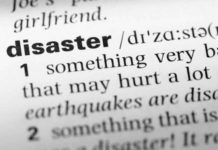Hawaii, known for its appeal to those seeking sunshine and waves, is grappling with a notable issue: a housing shortage exacerbated in part by overseas investments. Senator Brenton Awa, a member of the Republican Party, has proposed a daring measure aimed at restricting land acquisitions by non-residents, with the aim of easing the financial strain on local inhabitants.
Awa told KHON-TV that they had noticed a significant increase in home prices, with a rise of $400,000 over the course of a year. He attributed this surge to the arrival of external buyers bringing cash into the market. Awa argued that these foreign buyers, who often have considerable financial resources, were outbidding local residents who were grappling with stagnant wages, thus making it difficult for them to enter the housing market.
The suggested legislation aims to tackle this issue by mandating that buyers provide affidavits, with the risk of perjury, affirming they are not “foreign principals” – individuals living outside the United States without US citizenship or permanent residency. This initiative seeks to establish a hurdle for foreign investment, potentially mitigating the swift price escalations and making land more accessible to local purchasers.
Nevertheless, the concern surpasses mere affordability. For a while now, Hawaii residents have been expressing worries regarding the influence of tourism and upscale construction on their neighborhoods. The increase in vacation rentals and lavish resorts, while contributing to the economy, has resulted in a scarcity of housing options for locals.
This feeling is heightened by the state’s exorbitant housing prices, which the University of Hawaii Economic Research Organization stated are 2.5 times greater than the national average.
The situation worsened with the destructive Maui wildfires in August 2023, which obliterated numerous structures, including affordable housing units, leaving countless individuals displaced and in precarious situations.
While Awa’s bill instills optimism in some quarters, apprehensions persist. State Attorney General Anne Lopez has raised doubts about its “constitutionality and legality,” pointing out the possibility of legal disputes. Additionally, there are concerns that such limitations could have adverse effects on the state’s tourism sector, which is a significant contributor to the economy.
Conversely, Governor Josh Green’s emergency proclamation to accelerate the establishment of small village communities for the homeless provides insight into the pressing nature of the situation.




